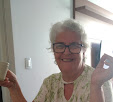CHERRY
PINK AND APPLE BLOSSOM WHITE
BEEGIE
ADAIR TRIO
SONGWRITER:
Louiguy
HOW: PIANO
- INSTRUMENTAL
COUNTRY: U.
S. A.
ALBUM: AN
AFFAIR TO REMEMBER: ROMANTIC SONGS OF 1950’S
LABEL: GREEN
HILL PRODUCTIONS
GENRE: JAZZ
YEAR: 2005
Bobbe Gorin "Beegie"
Adair, née Long (born December 11, 1937, Barren County, Kentucky, United
States) is an American jazz pianist. She studied piano at Western Kentucky
University. She moved to Nashville, Tennessee, where she did graduate work at Peabody
College. She later
went on to form the Beegie Adair Trio.
Adair has recorded and
appeared in over 90 recordings (37 of which are recorded with her trio, the
Beegie Adair Trio, which consists of bassist Roger Spencer and percussionist Chris
Brown), ranging from Cole Porter standards to Frank Sinatra classics to
romantic World War II ballads. She has released a six-CD Centennial Composers Collection of tunes by
Rodgers, Gershwin, Kern, Ellington, Carmichael and Berlin. Adair
cites George Shearing, Bill Evans, Oscar Peterson and Erroll Garner among her
influences.
She lives in Franklin, Tennessee.
Her late husband, Billy, was an associate professor of jazz studies at the
Blair School in Vanderbilt University until his death in February 2014. She is
a Board & Faculty member of the Nashville Jazz Workshop and performs
regularly in Nashville.
"Cherry Pink and
Apple Blossom White" or "Cerezo Rosa" or "Ciliegi
Rosa" or "Gummy Mambo", is the English version of
"Cerisiers Roses et Pommiers Blancs", a popular song with music by Louiguy
written in 1950. French lyrics to the song by Jacques Larue and English lyrics
by Mack David both exist, and recordings of both have been quite popular.
However, Perez Prado's recording of the song as an instrumental with his
orchestra featuring trumpeter Billy Regis, whose trumpet sound would slide down
and up before the melody would resume, was the most popular version in 1955,
reaching number one for 10 weeks on the Billboard chart. It became a gold
record. Perez had first recorded this title for the movie Underwater!(1955),
where Jane Russell can be seen dancing to the song. Billboard ranked this
version as the No. 1 song of 1955. The most popular vocal version in the U.S. was
by Alan Dale, reaching No. 14 on the chart in 1955.
In the United Kingdom, two
versions of the song went to number one in 1955. The first was the version by
Perez Prado, which reached number one for two weeks. Less than a month later, a
version by the British trumpeter Eddie Calvert reached number one for four
weeks.







0 comentários:
Postar um comentário